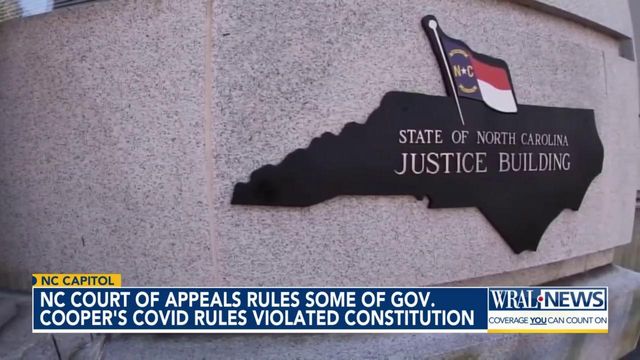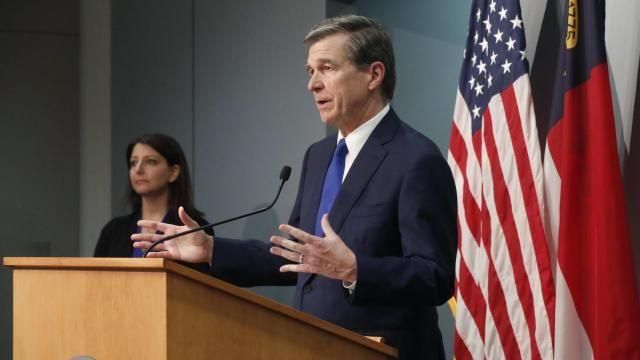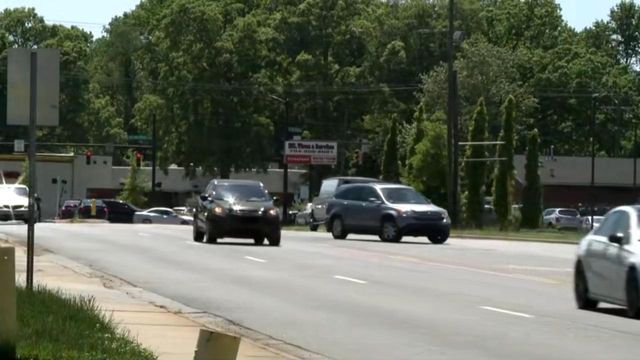Did Cooper's Covid lockdowns violate the NC Constitution? Court of Appeals says yes, and no
North Carolina's mandatory business closures in the early stages of the Covid-19 pandemic were partially unconstitutional, the state Court of Appeals ruled Tuesday.
It’s the latest step in a long-running lawsuit brought by an advocacy group for bars, the North Carolina Bar and Tavern Association. The association acknowledged in its lawsuit that Democratic Gov. Roy Cooper had the authority to issue widespread lockdown orders to protect public health at the start of the pandemic when dozens of North Carolinians were dying every week. But once Cooper allowed restaurants to partially reopen but kept bars closed, the group argued, he violated their rights.
In a partial win for Cooper, the ruling Tuesday shot down many of the claims that the bars made about constitutional violations, largely cutting off the bar owners from several opportunities for financial compensation from the state. But the judges did rule in favor of the bars on one key claim: That Cooper's decision to start treating bars differently from restaurants or hotels that also served alcohol lacked enough scientific evidence to justify.
Cooper therefore improperly deprived the bar owners of the opportunity to make a living, as is guaranteed in the state constitution, the judges wrote. That will allow a trial court judge to take a fresh look at the facts, and determine the best way to make it up to the bar owners. They're hoping for financial compensation.
"The governor’s decision forced many of these bars to eventually close permanently," said Zack Medford, a Raleigh bar owner and president of the association. "Today’s ruling makes it clear that the governor was wrong and now the state needs to make it right.”
Medford, who recently opened new bar Tap Yard, lost four bars in Raleigh during the pandemic — Coglin's, Paddy O'Beers, Isaac Hunter's Tavern and Parliament. He told WRAL in an interview Tuesday it was bittersweet to finally get a win in the lawsuit, years after he and hundreds of others around the state already lost their businesses.
"Small business owners across the state have really gotten an unfair deal," Medford said. "It’s been four years. We lost some incredibly amazing bars in that time. It took this long but, we finally got a win. So it feels really good today."
Lack of scientific evidence
The ruling notes that Cooper, as part of this lawsuit, submitted a number of news articles from around the country on bars being linked to Covid outbreaks. The judges said they weren't doubting the veracity of such reports, or other evidence Cooper submitted about the spread of Covid, but that they failed to see why bars had to be treated differently than other places that also served alcohol.
The judges wrote that Cooper "has not demonstrated any logic in the complete closure of bars for on-premises service when the same measures that allowed other types of bars, such as hotel and restaurant bars, to open could have been applied to the operation of those businesses."
The 3-0 ruling, from a panel of three Republican judges on the Court of Appeals, will send the case back to trial unless either side appeals to the Supreme Court.
Cooper's office defended the lockdown rules as saving lives while also balancing the need to keep the economy going, particularly in the months before Covid-19 vaccines became available.
"The balanced and necessary actions the state took in consultation with health officials early in the pandemic followed the law, saved lives and saved jobs," Cooper spokeswoman Mary Scott Winstead said. "When this action was taken almost four years ago, hospitals were overflowing, thousands of people were dying, protective equipment was in short supply and vaccines and treatments were nonexistent. The governor’s office will continue to work to maintain the ability of health officials to respond effectively should deadly outbreaks and emergencies occur in the future."
No constitutional violations occurred during North Carolina's initial shutdowns that broadly targeted all bars and restaurants alike, the ruling stated — only when the government began treating some establishments differently than others.
"The continued closure of plaintiffs’ bars while permitting other similar establishments to reopen under certain conditions violated plaintiffs’ right to enjoy the fruits of their own labor from the operation of their respective businesses," the judges wrote. "Therefore, the unequal treatment of plaintiffs compared to other similar establishments was illogical and not rationally related to defendant’s stated objective of slowing the spread of Covid-19."
There's a separate but related lawsuit filed by a different group, the North Carolina Bar Owners Association, which challenged the same set of pandemic-era decisions but using different legal arguments. That case is before the state Supreme Court.
Cooper's administration has also faced other lawsuits from churches, strip clubs, gyms and others who challenged the Covid-era lockdowns. And while some have ended, others are still winding their way through court four years after the shutdowns began.











